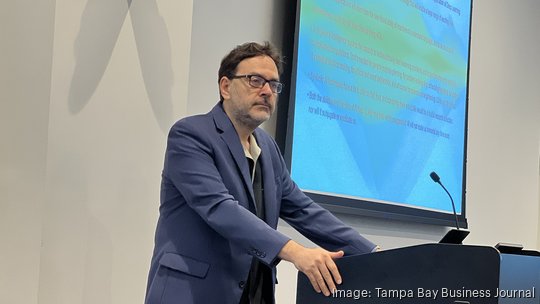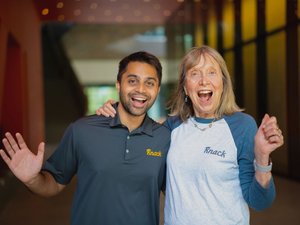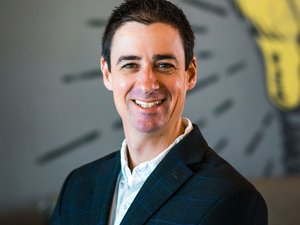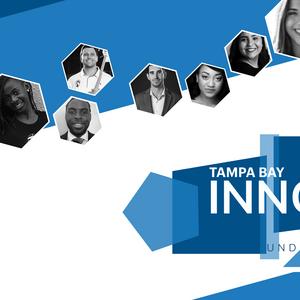
Konstantine Arkoudas started his presentation by saying AI technology is like the Industrial Revolution or the nuclear revolution.
He talked about how the technology will catalyze advancement in the medical, legal and consumer technology space. But his speech — delivered to a University of South Florida audience for the AI-X Symposium event — concluded that while AI is revolutionary, its current abilities are exaggerated, and its value is yet to be created.
The hourlong presentation was part of the AI-X Symposium, an academic event at USF hosted by the university's Institute for Artificial Intelligence. The event was a day of programming and professional networking, and Arkoudas was the keynote speaker.
Arkoudas has been in the AI space for more than 10 years. He has a Ph.D. from the Massachusetts Institute of Technology and held leadership positions on AI-focused teams at Bloomberg AI and Amazon. He has worked with several startups and is currently the chief technology officer for Dyania Health, a global AI health care research company.
Arkoudas' speech highlighted that different AI technologies are capable of separate abilities. Artificial intelligence encompasses a range of technologies, such as machine learning, deep learning and large language models.
Machine learning is training an algorithm on data to classify prompts it recognizes from its training. Deep learning is a network of machine learning algorithms, often called neural networks. Deep learning is what large language models use. LLMs are the technology behind generative AI and apps like ChatGPT, the app released in 2023 by OpenAI that became the fastest-growing app of all time.
LLMs can understand computer programming, language, syntax and grammar. They can take the entirety of Wikipedia and understand its language and factual details. But they can't perform "nontrivial reasoning," he said.
He clicked on a video of ChatGPT being prompted to solve a sudoku puzzle. The video shows the chatbot hallucinating that it solved the puzzle, but the solution was full of errors. He showed another video prompting ChatGPT to calculate the history of the World Cup. This time, it shared the wrong number of years the World Cup has happened because it added up each annual tournament, failing to leave out years where the event didn't happen.
He concluded the speech with this: LLMs hallucinate or confidently deliver misinformation, and they aren't able to reason or evaluate facts critically. Even with advancements, AI can't reason or critically understand prompt questions — and they're no "cause for our extinction," he said.
"Combining analysis and synthesis, LLMs are not equipped to do that," Arkoudas said. "Smaller AIs are able to do that, and they need to be married with LLMs if we are ever going to get truly intelligent systems."
Arkoudas offered some advice to Tampa Bay Business Journal readers after the speech.
Investors and company founders need to look at the "why" and "what" of the AI product. LLMs should be used to solve a defined problem for a specific reason. Then, they need to be able to verify that the solution works, not judge "how" it is working. The inner workings of AI technology are considered a "black box." It's impossible to tell exactly what went on behind the artificial predictive reasoning. Evaluating an AI product comes from accepting the black box of it and seeing its production improve over time.
"They can sort of abstract all of that by viewing it as a bit of a black box and then just focusing on evaluation and results," Arkoudas said. "There has to be some specific test measuring some metric."









